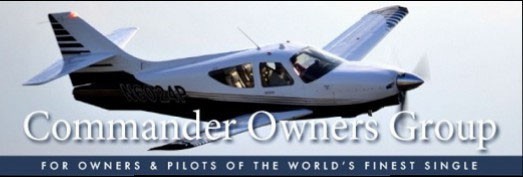Cincinnati, OH
- Aircraft Year
- 1998
- Aircraft Type
- 114TC/115TC
- Reg Number
- N114AD
- Serial Number
- 20020
Re: Clean 100 Octane Coalition Updates
Well, let's try this again. This "ultra-top secret" (really?) document has been approved for release by ARC. Once more, ARC's definition of "drop-in" goes far beyond simply being capable of being used in our aircraft w/o any engine or fuel system mods being required. Has to be intermixed w/ 100LL in both aircraft and refining/distribution systems, etc. Don't sweat that issue at this point. Biggest issue is the certification process for use in a particular aircraft. Seems a little ridiculous, but the process just wasn't written for an effort like this. Has become a thorny problem. How about just amending the reg guys? Gheesh!
================
With Robert Ragar’s persistence we now have a document which the ARC communications group has approved for distribution. It took a while, and the changes are quite modest, but we’ve managed to comply with the ARC’s needs and that was worth the wait. I am sorry about the premature release – as always, it was misunderstood communications. Such is life……….
You may distribute to your members any way you choose. Here’s the link:
http://app4.websitetonight.com/proj...2011_Briefing_Summary_UAT-ARC_Last_-_Whew.pdf
You may see a warning to be sure this is a trusted source – it’s ok. And if you are using Win 7, you may have to install a plug-in to view/save the file. If you are presented with these screens and you don’t wish to deal with it, just let me know and I’ll separately send an email with the summary attached.
Thanks for your support……………….
Lee B.
Well, let's try this again. This "ultra-top secret" (really?) document has been approved for release by ARC. Once more, ARC's definition of "drop-in" goes far beyond simply being capable of being used in our aircraft w/o any engine or fuel system mods being required. Has to be intermixed w/ 100LL in both aircraft and refining/distribution systems, etc. Don't sweat that issue at this point. Biggest issue is the certification process for use in a particular aircraft. Seems a little ridiculous, but the process just wasn't written for an effort like this. Has become a thorny problem. How about just amending the reg guys? Gheesh!
================
With Robert Ragar’s persistence we now have a document which the ARC communications group has approved for distribution. It took a while, and the changes are quite modest, but we’ve managed to comply with the ARC’s needs and that was worth the wait. I am sorry about the premature release – as always, it was misunderstood communications. Such is life……….
You may distribute to your members any way you choose. Here’s the link:
http://app4.websitetonight.com/proj...2011_Briefing_Summary_UAT-ARC_Last_-_Whew.pdf
You may see a warning to be sure this is a trusted source – it’s ok. And if you are using Win 7, you may have to install a plug-in to view/save the file. If you are presented with these screens and you don’t wish to deal with it, just let me know and I’ll separately send an email with the summary attached.
Thanks for your support……………….
Lee B.
